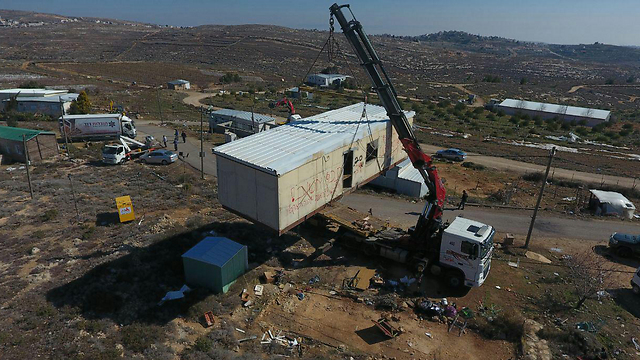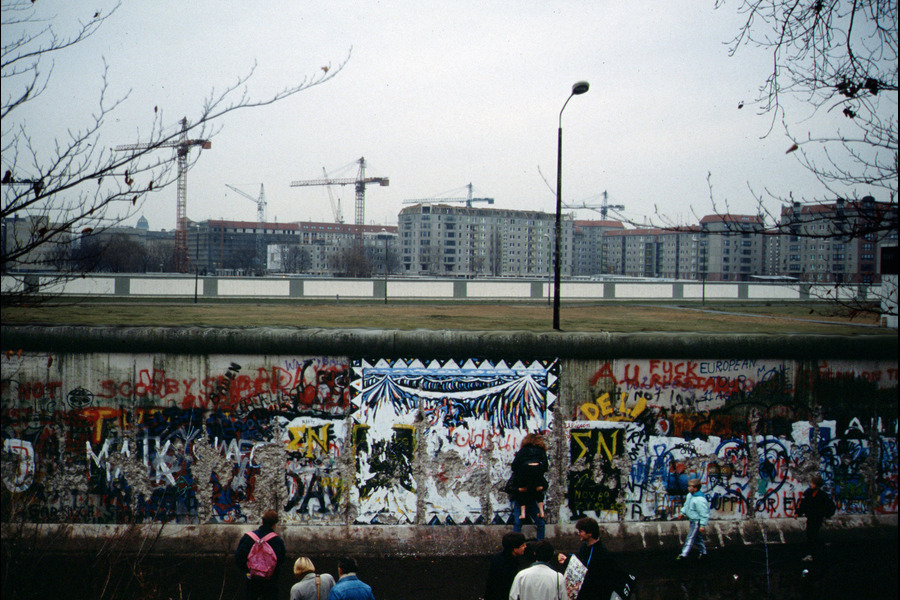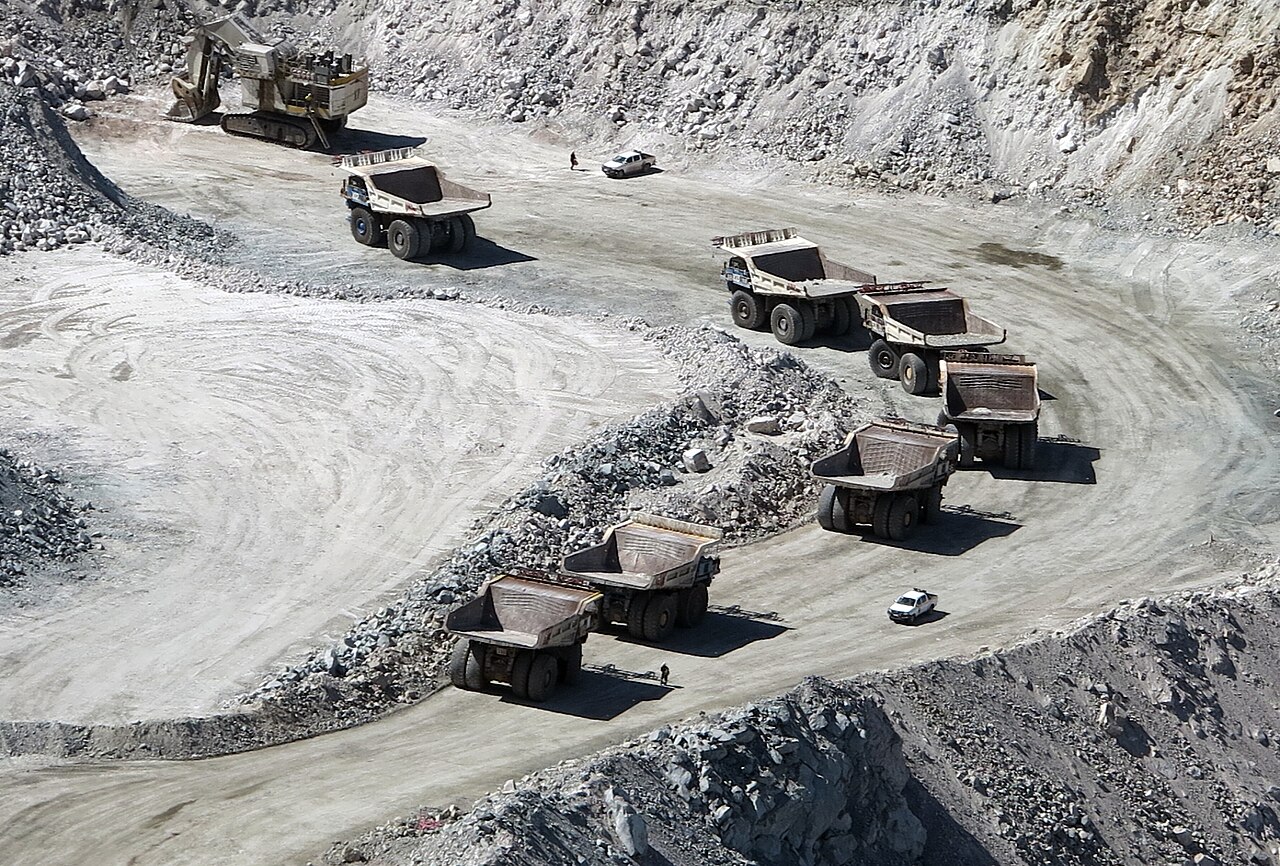Amona and the Settlement Regularization Bill: The Politicization of Suffering and the Threat to the High Court
Last week, after years of stays and delays, the Israeli government finally enforced a ruling of the country’s High Court and began dismantling the settlement of Amona. In scenes of resistance designed to haunt policymakers who favor further withdrawals, Israeli security forces dragged wailing protesters out of homes and synagogues.

Published by The Lawfare Institute
in Cooperation With

Last week, after years of stays and delays, the Israeli government finally enforced a ruling of the country’s High Court and began dismantling the settlement of Amona. In scenes of resistance designed to haunt policymakers who favor further withdrawals, Israeli security forces dragged wailing protesters out of homes and synagogues.
Late Monday night, the settler movement exacted its price. Despite furious criticism from opposition parties and the country’s legal establishment, Israel’s parliament passed the “Settlement Regularization” bill. The legislation, expertly outlined by Elena Chachko here, permits the formal expropriation (in return for compensation) of private Palestinian land that has been settled by Israelis in cases in which the land was settled a) absent knowledge of the private ownership and b) with some form of government support.
The law—and the role of the Amona controversy in justifying its passage—exemplifies one of the great tragedies of the Israeli-Palestinian conflict: the politicization of personal suffering. Over the years, both sides have spent the agony of their supporters as political currency; the Israeli right now stands to do so again after the demolition of Amona. And even if the new law fails legal challenges, forcing the High Court to overturn legislation will advance another key objective of the settler movement: weakening the already embattled judiciary.
Speaking with people who grew up near Amona, it is easy to forget that by rights the community should never have been built. They often talk of the constant breeze, the children clambering up the hill from the neighboring town of Ofra, and the panoramic vista that includes a glorious view of Jerusalem. For those who came of age after its founding in 1995, Amona is a home like any other; its destruction, an unforeseen tragedy.
The settlers who first erected trailers in Amona in 1995 should have known that their presence was tenuous; they acted outside of the law and without proper permits. But they also knew that initial tenuousness is the origin story of much that is now permanent. The story of many settlements in the West Bank—even those now part of the Israeli “consensus”—is one of legal limbo, of winks and nods from local military commanders and sympathetic bureaucrats, of racing from hilltop to hilltop and slowly extracting government acquiescence. The story of Israel’s early pioneers is not so different: secret land purchases, circumvention of British policy, and the bold creation of “facts on the ground” built much of the modern state.
Of course, these precedents have a crucial difference. The kibbutzim of the early 20th century—and even the West Bank settlements established after the 1967 war—were not built on private land. Amona was different—it was illegal under Israeli law—and so the High Court ordered its demolition.
Amona’s supporters countered that the settlement’s founders never knew they were building on land owned by others. The residents have lived here in good faith for two decades, they insist. Why expel citizens from their homes rather than simply providing the previous owners with just compensation? This, then, is the fundamental defense of the Settlement Regularization Law: it is, proponents say, a sensible response to tragic misunderstandings, an equitable solution that protects the rights of Palestinian owners while allowing innocent Israelis to remain in their homes.
This argument omits crucial context: These are not simple property disputes; they are conflicts mired in ideology and national struggle. The law’s solicitousness toward residents who built on the property of others is not simply driven by sympathy for an innocent mistake. It is, rather, driven by the desire to secure a national movement’s claims, even at the expense of private individuals who lack their own state to defend their rights.
If families who chose to join a community under such a legal cloud still claim innocence, it is an innocence born of ignorance, deliberately curated by cynical leaders.
Nor can the decision to build in these settlements usually be categorized simply as “a good faith” mistake. Even as the first homes were erected in Amona, Palestinian locals were already protesting and petitioning authorities to preserve their property. Less than two years after Amona’s founding, Israeli authorities ruled on the land’s ownership and ordered the settlers to relinquish the hill. Settlement leaders were surely aware of the legal challenges. If families who chose to join a community under such a legal cloud still claim innocence, it is an innocence born of ignorance, deliberately curated by cynical leaders.
And that is the central tragedy. The instrumentalization of suffering is not new to the Israeli-Palestinian conflict. In the aftermath of the 1948 war, rather than absorb Palestinian refugees, Arab countries left them stateless. Their suffering and their need for statehood have long served as a bludgeon with which to batter Israel. Hamas, with each bloody war it launches from the Gaza Strip, seeks to gain as much from sympathy with the plight of Palestinian innocents caught in the crossfire as it does from Israeli losses.
The Israeli right has learned this lesson as well. Rather than devoting its resources to ameliorating the suffering of those expelled, the settler movement maximizes the trauma. Families remain in their homes until the eve of evacuation; court orders are fought for decades but alternate arrangements are never made; throngs of young protesters lock arms and cry, ensuring that removing them is emotionally and financially costly. Some of the settlers expelled from their homes in Gaza in 2005 remained in temporary housing for a decade. In part, this reflects bureaucratic incompetence by the Israeli government. But their suffering has also served as a useful propaganda tool for the settler movement—not so different from the Arab states’ use of Palestinian refugee suffering.
If the Regularization Law withstands the coming legal challenges, it will represent one of the great triumphs of this strategy. The removal and suffering of a single 40-family outpost, the movement’s more pragmatic leaders admit, represents a worthy price for such a far-reaching legal victory.
But the law will not stand. The High Court will strike it down, and in so doing, perhaps hand the settlers a more incremental, but potentially more lasting, victory.
In Israel, the legal consensus is clear: The law is unconstitutional. There is simply no way the expropriation of private land for private purposes can be reconciled with Israel’s Basic Law regarding human dignity and liberty. Even Israel’s right-leaning parliamentarians (and certainly its prime minister) know this. But as has too often been the case, Israeli politicians find it simpler to avoid responsibility and instead rely on the High Court to preserve the state’s core values. The Court will have no choice but to oblige.
As irresponsible politicians have increasingly relied on the judges to save the Knesset from itself...the Court’s legitimacy has been eroded.
For some, the inevitability of the High Court’s review is reason to say the law simply does not matter. This seems to be the position of the Trump administration. But this ignores the long campaign that the settler movement has waged against the High Court’s legitimacy. Judicial review of statutes in a country without a formal constitution will inevitably be controversial. As irresponsible politicians have increasingly relied on the judges to save the Knesset from itself, and as right-wing populists denounce the Court as an elitist institution out of touch with the values of the country, the Court’s legitimacy has been eroded.
Traditionally, the judges of the High Court have proved themselves political savvy. They strike down parliamentary legislation only rarely, exerting influence mainly through signals and warnings of unconstitutionality. This law, though, will force the Court’s hand.
Some day soon, the Court’s critics will make their move and seek to wrest control of judicial appointments or limit judicial review. If they succeed, it will be due in large part to the political capital the Court has spent on cases like these. And for the settler movement, that moment will be an even greater victory than the passage of this law.





